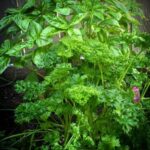Are eggshells good for vegetable gardens? Many gardeners are turning to natural, organic materials to enhance the health and productivity of their vegetable plots. In this article, we will explore the potential benefits of using eggshells in vegetable gardens, from their nutritional value to their role in soil health and pest control. By incorporating these simple yet effective methods into your gardening routine, you can create a more sustainable and eco-friendly environment for your plants to thrive.
Eggshells are not only a common kitchen waste product but also a valuable source of nutrients for vegetable gardens. Rich in calcium and other essential minerals, eggshells can provide a natural boost to plant growth and overall soil health. Understanding how to properly prepare and utilize eggshells in the garden can lead to significant improvements in the yield and quality of your vegetables.
In the following sections, we will delve into the nutritional value of eggshells, the best practices for preparing them for use in the garden, and the various ways they can contribute to soil health and pest control. By the end of this article, you will be equipped with practical tips and techniques for integrating eggshells into your garden maintenance routine, ultimately leading to a more bountiful harvest.
The Nutritional Value of Eggshells
Eggshells are often considered as waste, but they can actually be a valuable source of nutrients for vegetable gardens. In fact, eggshells are comprised of approximately 95% calcium carbonate, making them an excellent natural source of calcium for plants. Additionally, eggshells also contain other essential nutrients such as magnesium, potassium, and phosphorus, all of which are beneficial for plant growth and development.
Using eggshells in the garden is a sustainable way to recycle kitchen waste and provide essential minerals to the soil. In addition to their nutritional value, eggshells also have the added benefit of being pH neutral, which means they can help to balance acidic soils and improve overall soil health. By incorporating crushed eggshells into the garden, gardeners can ensure that their plants receive a steady supply of calcium and other vital nutrients throughout the growing season.
To make the most of the nutritional value of eggshells in vegetable gardens, it is important to properly prepare them for use in the soil. This involves thoroughly cleaning and drying the shells before crushing them into small pieces that can be easily incorporated into the garden. By following these simple steps, gardeners can harness the rich calcium content and other essential nutrients found in eggshells to promote healthy plant growth and abundant harvests.
- Benefits of using eggshells in vegetable gardens
- Nutritional content of eggshells (calcium carbonate, magnesium, potassium)
- pH neutral nature of eggshells
- Proper methods for cleaning, drying, and crushing eggshells
How to Prepare Eggshells for Use in the Garden
The nutrient-rich composition of eggshells makes them a valuable and cost-effective addition to any vegetable garden. Before using eggshells in the garden, it is important to properly prepare them to maximize their benefits. The process involves cleaning, drying, and crushing the eggshells into smaller pieces that can be easily incorporated into the soil.
To start, collect the eggshells from your kitchen. It is essential to clean the eggshells thoroughly to remove any remnants of egg white or yolk. This can be done by rinsing them with water and using a small brush to scrub away any remaining residue. Once clean, allow the eggshells to dry completely. Drying can be expedited by placing them in an oven at a low temperature for a few minutes.
After the eggshells are dry, they should be crushed into smaller pieces before adding them to the garden soil. This can be easily accomplished by using a mortar and pestle or placing the shells in a resealable plastic bag and crushing them with a rolling pin or mallet. The goal is to break the shells into small enough pieces that they will decompose easily in the soil, releasing their calcium content and other beneficial minerals over time.
| Method | Description |
|---|---|
| Cleaning | Rinse with water and scrub away any residue |
| Drying | Alllowing the shells to dry completely before use |
| Crushing | Breaking shells into small pieces for easy decomposition in soil |
The Role of Eggshells in Soil Health
Eggshells are not only beneficial for adding calcium to the soil but also contribute to overall soil health in vegetable gardens. The calcium content in eggshells is an essential nutrient that helps prevent conditions like blossom end rot in plants. In addition to calcium, eggshells also contain other important minerals such as magnesium, potassium, and phosphorus, all of which are crucial for plant growth and development.
Improving Soil pH Levels
One of the key benefits of using eggshells in vegetable gardens is their ability to improve soil pH levels. Eggshells are alkaline in nature, and when crushed and added to the soil, they can help neutralize acidic soils. This is particularly important for plants that require a more balanced pH level to thrive. By incorporating crushed eggshells into the soil, gardeners can create a more hospitable environment for a wide variety of vegetable crops.
Slow-Release Source of Nutrients
In addition to their impact on soil pH levels, eggshells also provide a slow-release source of nutrients for plants. As the eggshells break down over time, they release valuable minerals into the soil, providing a steady supply of nutrients to growing plants. This slow-release action ensures that plants receive a consistent source of essential minerals throughout their growth stages, ultimately contributing to healthier and more productive vegetable gardens.
As gardeners seek natural and sustainable ways to improve the health and productivity of their vegetable gardens, incorporating eggshells into the gardening routine can be a simple yet effective strategy. From enhancing soil pH levels to providing a slow-release source of nutrients for plants, eggshells offer multiple benefits that make them a valuable addition to any vegetable garden maintenance plan.
Using Eggshells as Pest Control
Eggshells have long been touted as a natural and effective method for pest control in vegetable gardens. The abrasive texture of crushed eggshells can act as a deterrent for certain common garden pests, helping to protect your plants from damage. Here are some ways in which eggshells can be used as an eco-friendly solution for pest control:
- Slug and Snail Barrier: Sprinkling crushed eggshells around the base of plants can create a barrier that deters slugs and snails, preventing them from reaching and damaging tender foliage.
- Cutworm Protection: Placing crushed eggshells around the stems of young seedlings can help deter cutworms, which are known to feed on the base of tender plants and cause significant damage.
- Pest-Repelling Scatter: By scattering larger pieces of eggshells throughout the garden, you can potentially deter larger pests such as rodents or birds from foraging among your crops
In addition to providing a natural pest deterrent, eggshells also contribute to soil health by releasing essential nutrients over time. As the eggshells break down, they can enrich the soil with calcium and other minerals, supporting the overall health and growth of your vegetable plants. This dual benefit makes eggshells a valuable addition to any organic gardening approach.
Furthermore, using eggshells as part of an integrated pest management strategy aligns with environmentally conscious gardening practices. Instead of relying on synthetic chemicals that may have harmful effects on beneficial insects and wildlife, incorporating eggshells into your garden maintenance routine offers a sustainable alternative that promotes harmony within the ecosystem.
Composting With Eggshells
Eggshells are not only beneficial for vegetable gardens in their raw form but can also play a significant role in enhancing the composting process and improving soil fertility. Composting with eggshells is an effective way to make use of this natural material while providing valuable nutrients to the garden soil.
Benefits of Composting With Eggshells
When eggshells are added to a compost pile, they contribute valuable calcium to the mix, which is essential for plant growth and overall soil health. In addition to calcium, eggshells also contain other essential minerals such as potassium and magnesium, making them a valuable addition to compost. As the eggshells break down, they release these nutrients into the compost, enriching it with beneficial elements that will later nourish the plants.
How to Compost With Eggshells
To effectively compost with eggshells, it is important to prepare them properly. After using eggs, rinse the shells thoroughly to remove any remaining membrane or egg white. Once clean, allow the shells to air-dry completely before crushing them into small pieces. The crushed eggshells can then be added directly to the compost pile or bin, where they will gradually decompose and release their nutrients into the mixture.
Improving Soil Fertility
As the eggshells break down within the compost, they contribute to improving soil fertility by enriching it with essential nutrients. The calcium content in particular helps balance soil pH levels and prevents deficiencies that may hinder plant growth. Additionally, the gradual release of nutrients from decomposing eggshells provides a sustainable source of nourishment for both existing plants and future seedlings. Overall, incorporating eggshells into composting activities can significantly enhance soil fertility and promote healthier vegetable gardens.
Tips for Using Eggshells in Vegetable Gardens
One practical tip for using eggshells in vegetable gardens is to crush them into small pieces before incorporating them into the soil. This step allows the eggshells to break down more easily, releasing their beneficial nutrients into the soil over time. It’s also important to ensure that the eggshells are completely dry before crushing them, as this can prevent any unpleasant odors from developing in the garden.
Another useful trick is to strategically place crushed eggshells around the base of plants to act as a natural barrier against certain pests. Snails, slugs, and other crawling insects are known to avoid sharp or abrasive surfaces, making crushed eggshells an effective form of pest control. Additionally, sprinkling finely ground eggshells on the soil surface can deter these pests from targeting young seedlings and delicate plants.
Incorporating crushed eggshells into compost piles is another great way to enhance their overall nutrient content. The calcium and other minerals present in eggshells can contribute to the fertility of the compost, ultimately enriching the soil once it’s ready for use in the garden. As an added bonus, utilizing eggshells in composting also helps reduce waste by repurposing a commonly discarded kitchen item.
| Practical Tips | Benefits |
|---|---|
| Crush before incorporating into soil | Allows easier breakdown and release of nutrients |
| Use as pest barrier | Deters snails, slugs, and other crawling insects from plants |
| Incorporate into compost | Enhances nutrient content and reduces waste |
Conclusion
In conclusion, the use of eggshells in vegetable gardens can bring a multitude of benefits to both the plants and the soil. From providing essential nutrients like calcium to improving soil pH levels and deterring pests, eggshells offer a natural and sustainable way to enhance garden health. By incorporating eggshells into your gardening routine, you can not only support the growth of your vegetables but also contribute to overall soil fertility and sustainability.
It is important to remember that while eggshells can be a valuable addition to your garden, they should be properly prepared before use. Cleaning, drying, and crushing the eggshells will ensure that they are safe for application and allow for optimal nutrient release into the soil. Additionally, considering composting as a method for incorporating eggshells into your garden can further improve their effectiveness in nourishing your plants and maintaining healthy soil.
As you venture into using eggshells in your vegetable garden, remember that patience is key. The benefits of eggshells may not be immediately apparent, but over time, their slow-release nutrients will contribute to stronger, healthier plants.
Whether you sprinkle crushed eggshells around the base of your vegetables or incorporate them into your compost pile, taking advantage of this natural resource can lead to long-term improvements in your garden’s productivity and resilience. So don’t hesitate to give it a try and see the positive impact that eggshells can have on your vegetable garden.
Frequently Asked Questions
Can I Put Eggshells Directly in My Garden?
Yes, you can put eggshells directly in your garden. Eggshells are a good source of calcium and other minerals that can benefit the soil and help improve the health of your plants.
Which Vegetables Like Egg Shells?
Some vegetables that like egg shells include tomatoes, peppers, and eggplants. These plants are known to benefit from the added calcium that eggshells provide, especially during their growing season.
How Often Should I Put Eggshells in My Garden?
You can put eggshells in your garden as often as you have them available. There’s no strict rule about how often, but it’s generally a good idea to crush them up and sprinkle them around your plants every couple of weeks during the growing season to continually replenish the soil with calcium and other beneficial minerals.

If you’re looking to get into vegetable gardening, or are just looking for some tips on how to make your current garden better, then you’ve come to the right place! My name is Ethel and I have been gardening for years. In this blog, I’m going to share with you some of my best tips on how to create a successful vegetable garden.





